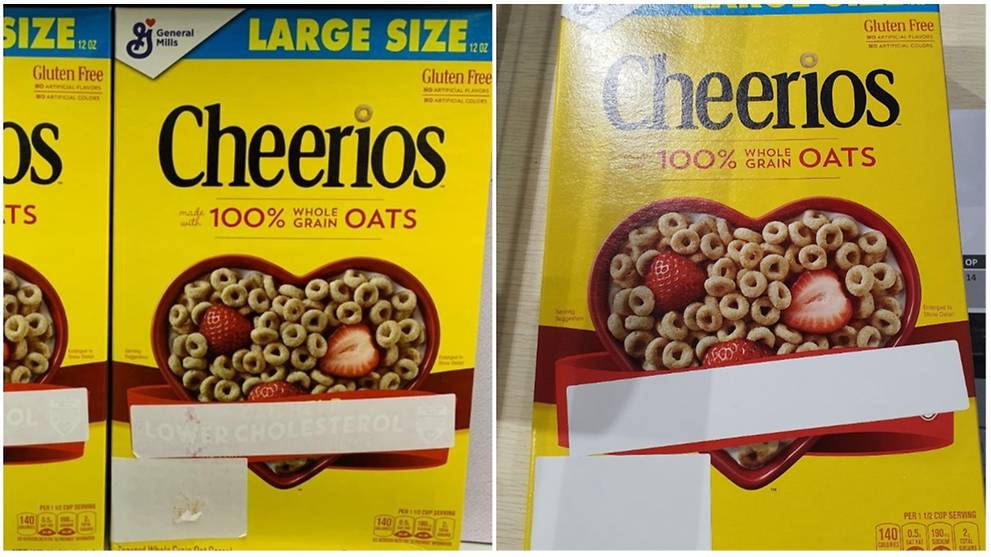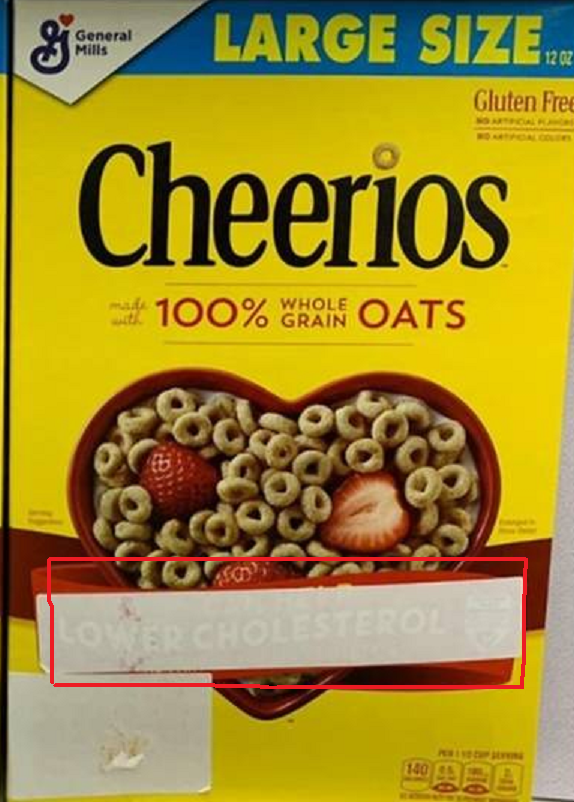Believe it or not, there are some cereals out there which have health benefits.

Just like Singaporeans who don’t enjoy queueing, healthy cereals exist, but they are rare.
Still, did you know that food products like cereals cannot claim they are healthy?
If they do, the supermarket which houses them might end up in hot water.
Giant Responds to Cereals That Have Claims That Aren’t Allowed in S’pore
If you’d visited a Giant supermarket lately, you might have seen this:

Reader: A box of Cheerios cereal?
Look closer.
Reader: It’s Gluten free?

Okay you looked too closely.
CNA discovered that the packaging has a label which says “lower cholesterol” on the box, and although it’s been covered with a translucent white sticker, the words are still visible on some of the boxes.

In response to CNA’s find, Dairy Farm, the company that runs Giant, says it will make sure that these labels are no longer visible on their products.
“We are ensuring that the claims are not visible by double layering the stickers,” a spokesperson from Dairy Farm said.
But why is this wrong?
Food Products Cannot Display Unpermitted Labels
The problem is that it goes against Singapore’s food regulations, which dictate that food products must not be labelled or advertised to have any therapeutic or prophylactic benefits, unless it’s permitted.
In other words, food products cannot say that they will prevent, alleviate, or cure any illness, nor can it claim that it will improve a customer’s health and physical condition.
“Food businesses should ensure that the unpermitted claims are not visible to consumers at the point of sale,” the Singapore Food Agency said.
If businesses have imported food products with claims not permitted by the SFA, they may remove the claims by striking them out or by using sticker labels, the agency said.
SFA confirmed that it is investigating the Giant outlet for the visible claims on some of its Cheerios cereal boxes.
Offenders Face a $5,000 Fine
The Sale of Food Act states that it is prohibited to sell food products that are labelled or advertised in a manner that is false, misleading, or deceptive.
The purpose of the act is to “ensure that food for sale is safe and suitable for human consumption and to promote public health”, as well as enabling consumers to make informed choices.
According to CNA, first-time offenders face a $5,000 fine, while a subsequent conviction can lead to a fine of up to $10,000 and/or up to three months in prison.
Dairy Farm claims, however, that its standard practice is to cover up non-compliant claims.
“At Dairy Farm, if a product contains multiple non-compliant claims, we will stop carrying the product for consumer safety and welfare.”
“We have not received any feedback from customers regarding (the Cheerios cereal in question) so far,” they said.




